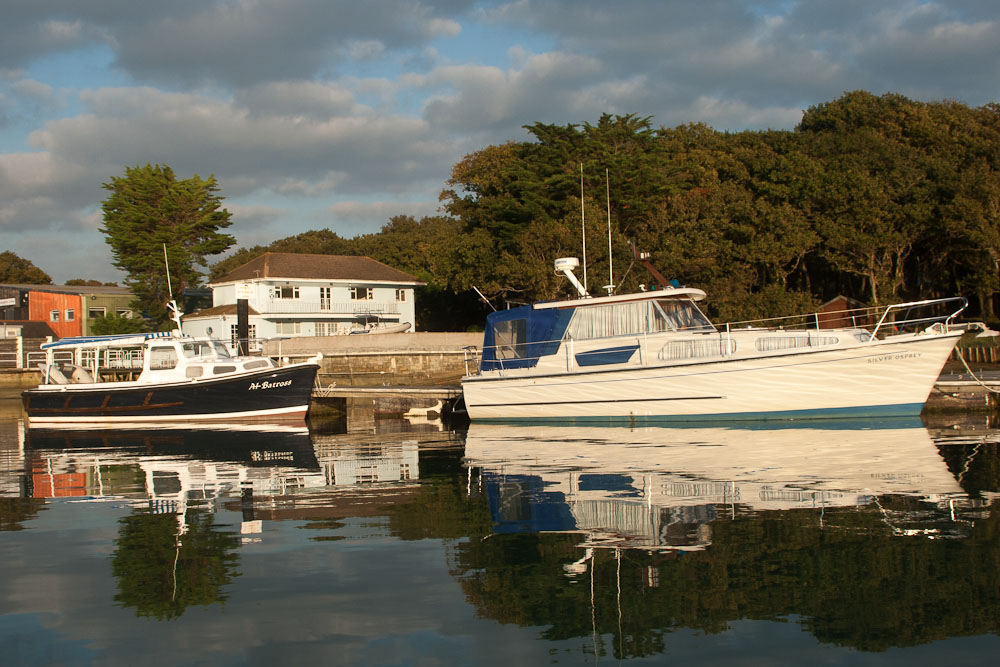- Check the boat seller's website, social media and other online presence to verify their identity. You should make sure that their account and content is older than 1 month.
- Never give any PINs, bank card details, passwords or other sensitive information to anyone.
- Always view the boat in person before buying. When this isn't possible, ask the seller for a to do a boat tour via video call.
- Always check the prices of other similar boats to see whether the asking price is a lot lower than the market value.
Buying or selling a boat should be a joyous occasion, and we hope our mission has made the process a relatively painless experience for all. Unfortunately, whenever large amounts of money are being dealt, there will always be people out there looking to capitalise on this and turn those boating dreams into crushing nightmares.
Due to the current pandemic and restrictions to travel, there has been a dramatic increase in less face-to-face dealings and boat buying remotely. Although positive that people are keeping safe, and ultimately the way things are going, this has allowed a rise in more boat selling scams.
We have been assisting online boat sales for some decades and in that time have shut down and reported many fraudulent listings, websites and so-called 'brokers'. Most have been flagged automatically from our scam tests in our system, but the best way to ultimately pick them out is with a discerning eye and putting them to the test. Here's how.
What to look out for:
1. I can't take my eyes off of you - you're just too good to be true.
More often than not, when you see a deal that looks like the steal of the century, it probably is, but not for you. Boat selling scams copy other businesses' credentials, information, and advertise the same boats and descriptions, but at silly prices.
If you're unsure, take a look at other similar boats for sale. Usually, these scams are advertised at 30-70% less than they should be. However, bear in mind that other factors can also affect how a boat is priced such as the year it was built, condition and engine hours.
Tip - Ask for a video call to see the boat in their possession. If they are advertising as a business, ask for a photograph of their ID. If they deny, walk away.
You can verify whether the boat is extremely underpriced by checking similar boats for sale.
2. Asking for bank details and personal information.
Even if you believe you are dealing with a legitimate business, only your bank will ever ask for a PIN or passwords. We would never ask for your details, and the same goes for any of our associated brokers.
Tip - Search for some social proof on a business, find their social media, Google reviews and query them on forums. Alarm bells should be ringing if they don't have any or only date back a few months. If it is a private seller, always get an independent survey and test their bank details before sending a deposit.
3. Send messages and emails with links.
As above, this is another tactic to extract your bank details known as phishing. By clicking on these links, they often have forms to fill your financial information over to scammers. The well-known messages are typically about 'suspicious activity on your account' or eligibility to some fake refund, or perhaps a boat you wish to buy.
Tip - Verify the authenticity of the domain by searching for the genuine contact or business.
4. Advanced fee fraud or the overpayment scam.
Usually, this scam involves sent cheques from overseas before delivery. We have detailed a few scenarios to look out for with advice on our security note page. You should never pay before seeing the boat in person, performing a survey and doing a sea trial.
A boat is a big investment so you want to be sure that (a) the boat suits your needs, and (b) it’s not a boat selling scam. Scammers are keen to get your money before you get to the viewing stage since they have nothing to offer. If you are unable to see the boat in person, ask the buyer to arrange a video call to show you the boat.
 Scammers are keen to get your money before you get to the viewing stage since they have nothing to offer. Photo: Pickawood on Unsplash
Scammers are keen to get your money before you get to the viewing stage since they have nothing to offer. Photo: Pickawood on Unsplash
5. Making offers or asking for deposits early in the buying/selling process.
As mentioned in our selling guide, be cautious with those that make offers before a viewing. Be wary of sellers who push for the 10% deposit early on in the conversation or ask for 20% or more! If the vendor doesn't seem co-operative or willing for you to organise an independent survey, walk away.
Troubling as it is that horror stories such as this keep happening, we can work together to prevent people from losing out. If you see something suspicious or are dealing with anything that doesn't seem quite right on our website, click the exclamation/warning button underneath the ads or email us at support@boatsandoutboards.co.uk with the subject line: Potential Scam.


